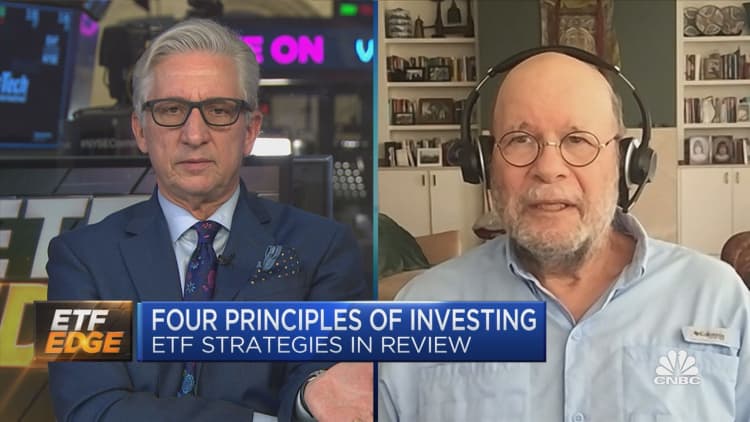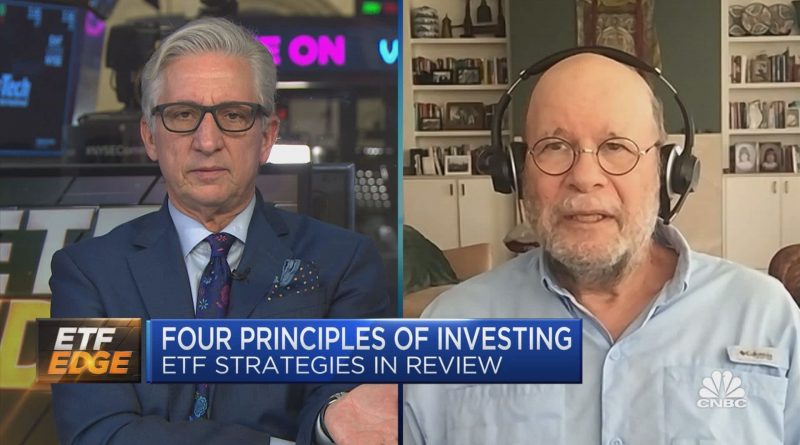New trading tech doesn’t alter long-standing investment fundamentals, best-selling financial author William Bernstein suggests

Advancements in investment products and trading platforms haven’t altered long-standing investing fundamentals, according to neurologist and best-selling financial author William Bernstein.
Bernstein, who released the second edition of his 21-year-old classic investment guidebook “The Four Pillars of Investing” this summer, joined CNBC’s Bob Pisani on “ETF Edge” this week.
The first pillar of investing according to Bernstein is theory, in which he stressed that risk and return are “joined at the hip.”
“If you want a perfectly safe portfolio, you’re not going to have high returns,” Bernstein said. “If you want the high returns that come with equities, you’re going to have to sustain bone-crushing losses.”
His second pillar is history. It plays off the idea markets overshoot on the upside and the downside, and only bottom in retrospect.
“Markets don’t get either very expensive or very cheap without a good reason,” Bernstein said. “You have to just be able to keep your discipline and understand that the expected market return has to do with the perceived risk of the market, and the perceived risk of the environment you’re in.”
The third pillar is psychology. Bernstein believes investors tend to be overconfident about their ability to pick stocks.
“The metaphor I like to use [for investing] is that you’re playing tennis with an invisible opponent, and what you don’t understand is the person on the other side of the net is Serena Williams,” Bernstein said.
Bernstein also emphasizes that investors tend to be overconfident on their own risk tolerance.
“One of the things I learned both in 2008 and more recently during the March 2020 Covid swoon was that how you behave in the worst 2% of the markets probably describes 90% of your overall investment performance,” he said.
Bernstein’s final investing pillar is business. It’s the notion the primary business of most fund companies is collecting assets rather than managing money.
This idea is one of the reasons Bernstein feels positive about the exchange-traded funds business and its role in reducing fees.
“One can purchase a lot of investment products now for next to nothing in terms of expenses — a couple of basis points,” Bernstein said.




